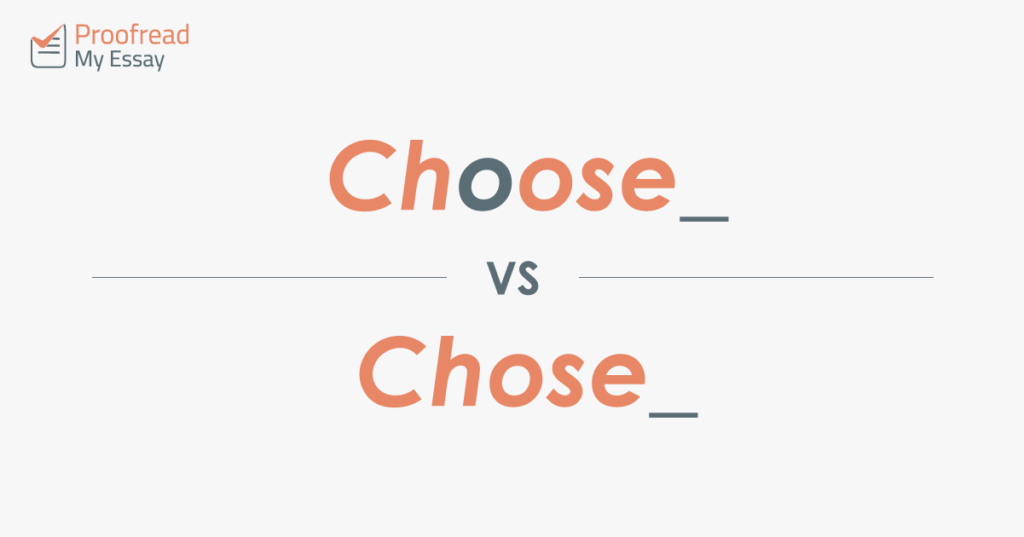‘Choose’ is an irregular verb. This means it doesn’t follow the standard pattern of adding ‘-d’ when forming past tenses (like when ‘loose’ becomes ‘loosed’). Instead, the simple past tense of ‘choose’ is ‘chose’. And since these words look very similar written down, they can cause confusion.
As such, to help you avoid mistakes, we’ve prepared a quick guide to the different tenses of ‘choose’.
Present Tense: Choose
The simple present tense of this term is ‘choose’, which means ‘decide on’ and rhymes with ‘shoes’. For instance, if using it in the present tense, we might say something like:
I choose to eat before going out.
It is also used with the words ‘will’ (i.e. in the simple future tense) and ‘would’ (i.e. in a hypothetical or otherwise unlikely conditional sentence). For instance:
I will choose what we eat tonight.
If I were you, I would choose Chinese food.
Essentially, then, we use ‘choose’ when a decision:
- Is currently being made
- Will be made in the future
- Is hypothetical and based on what we would do in the present
Simple Past Tense: Chose
The simple past tense of this word is ‘chose’, which rhymes with ‘nose’. For example, we could say:
I can’t believe you chose to eat so much garlic.
Find this useful?
Subscribe to our newsletter and get writing tips from our editors straight to your inbox.
As shown above, you should use ‘chose’ for decisions made in the past.
(Photo: Olichel)
Present and Past Participles: Choosing and Chosen
We should also look at the present and past participle forms of this term. The present participle of ‘choose’ is ‘choosing’, which is used in progressive (or continuous) tenses. For example, if we were describing an ongoing action of some kind, we might say:
I am choosing to ignore the smell.
This is the present continuous tense, as it refers to an ongoing process of choosing something.
The past participle, meanwhile, is ‘chosen’. We use this in the perfect tenses. For example:
I have chosen to buy an air freshener.
In this case, the present perfect tense ‘chosen’ shows that the act of choosing is complete but that it still applies in the present (i.e. that I intend to follow through on the decision).
Luckily, though, these participles are distinct from ‘choose’ and ‘chose’ in their spelling, and always preceded by some form of the verb ‘be’ (e.g. ‘am’ or ‘have’). Consequently, it’s easier to know when to use them.
